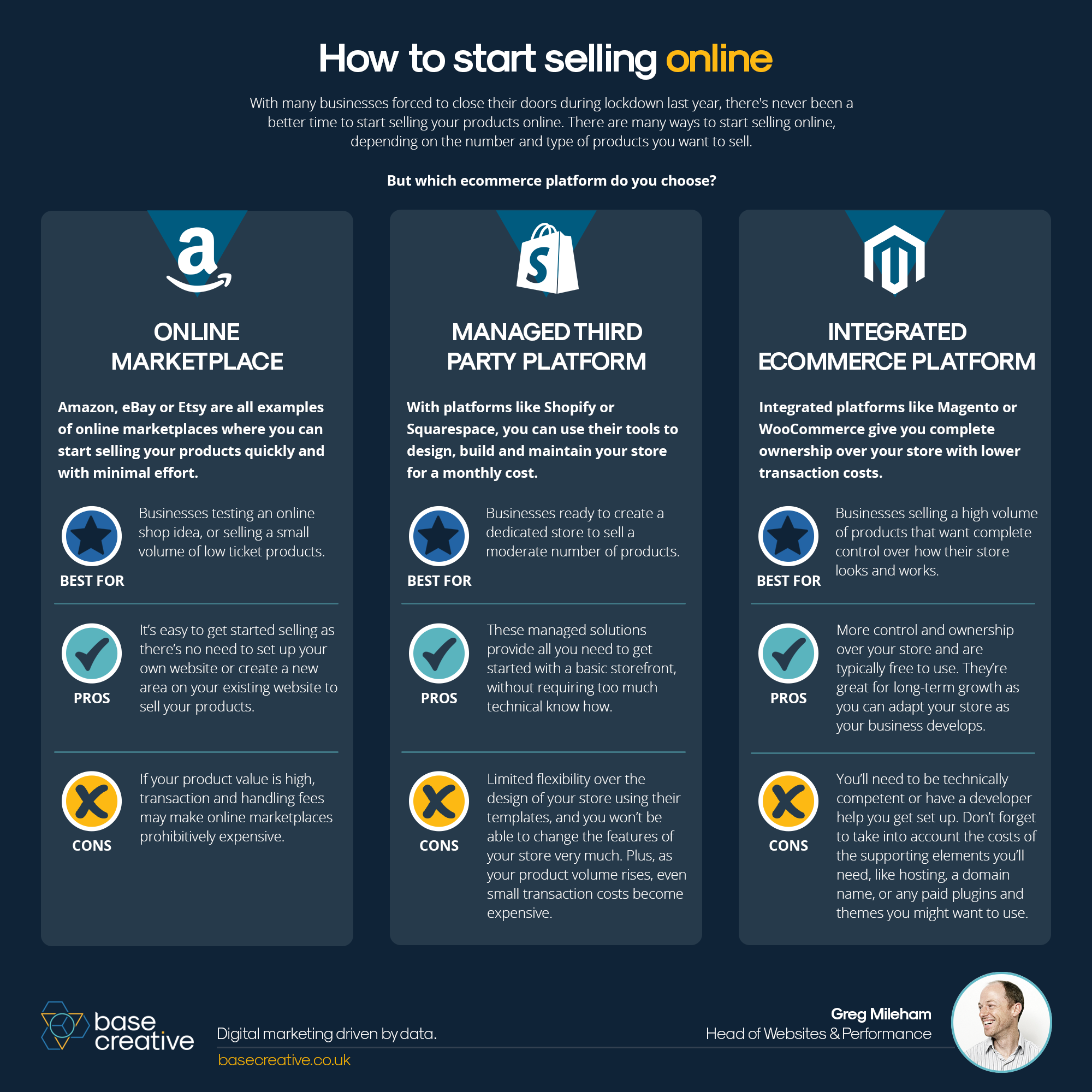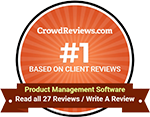Win More B2B Deals: The Secret Playbook for Building a High-Converting Print-on-Demand eCommerce Platform
In this guide, we will provide an overview of the key factors to consider when developing a B2B e-commerce platform. Whether you're a business owner or a developer, this guide will help you achieve success in B2B e-commerce development.
- By
- 1707 views
- 0 reply
TABLE OF CONTENTS
"I Knew My Store Could Do Better...
But I Didn't Know How"
That's what one of our clients, Jessica, told us. She was running a small mug store on WooCommerce—sales were okay, but stuck.
Until she discovered personalization.
Until she discovered Cmsmart.
Fast-forward 30 days:
- ✅ Her store was redesigned with AI product options
- ✅ Customers could design their own mugs with 3D preview
- ✅ AOV jumped by 42% — and she finally felt in control
Want to learn how she did it (and how you can too)?
🎓 Join our FREE 30-Day Email Course:
"Personalize, Launch & Scale – The Smart Ecommerce Way"
You'll get:
- ✔ 1 lesson a day, straight to your inbox
- ✔ Real store examples, demos & playbooks
- ✔ No tech jargon. Just strategy that works.
Join thousands of store owners learning how to scale smarter.
🎉 You're In! Thank You!
We've received your information and you're now part of our smart ecommerce journey.
Please check your inbox – your first email from the 30-Day Course is on its way!
📩 Didn't see it? Check your spam or promotions tab and mark us as safe.
We're excited to help you personalize, launch, and scale your store – the smart way.
TABLE OF CONTENTS
Related Post
Did you know that eCommerce sales are projected to reach a staggering $8 trillion by 2027? In a world where high transaction fees and limited flexibility can cripple potential...
Imagine doubling your conversion rates simply by understanding and implementing the latest trends in eCommerce - sounds exciting, right? In a 2022 report, it was highlighted that the global...
Introduction: The Power of Custom Stickers for SMEs In today’s dynamic ecommerce landscape, custom stickers have emerged as a powerful tool for small and medium-sized enterprises (SMEs) to stand out,...
Other Usefull Contents
You can see many success stories from our customers, and you may be one of them in the future












Introduction
Revolutionizing B2B with Print-on-Demand eCommerce
In the digital age, businesses are shifting from traditional supply chains to on-demand models. Print-on-Demand (POD) empowers B2B enterprises to offer custom-branded merchandise, streamline procurement, and scale operations without inventory constraints.
According to Smithers Pira, the global digital printing market, a core driver of POD, is projected to reach $225 billion by 2030, growing at a 6.7% CAGR from 2023.
POD is no longer exclusive to B2C. B2B clients—including corporations ordering branded merchandise and event organizers seeking custom giveaways—are increasingly embracing this model for its flexibility and cost-efficiency.
Why B2B POD is a Game Changer
Custom Branding at Scale: Enable clients to personalize products with logos and messaging.
Low-Risk Model: Eliminates upfront inventory, reducing financial exposure.
Streamlined Procurement: Simplifies bulk ordering and repeat purchases with dedicated client portals.
Integration Friendly: Seamlessly connects with ERP, CRM, and logistics systems.
Cmsmart: Your Partner for B2B POD Success
Cmsmart has been at the forefront of eCommerce innovation for over a decade, helping businesses build scalable, customizable, and automated B2B eCommerce platforms.
Cmsmart Online Designer: Enables B2B clients to create custom designs directly on your platform with 3D previews, advanced typography, cliparts, and templates.
Cmsmart Store: A comprehensive eCommerce platform built on WooCommerce, tailored for B2B workflows with multi-vendor support, custom pricing, and ERP/CRM integrations.
What This Guide Will Cover
Essential technical and business considerations for building a successful B2B POD platform.
Leveraging WordPress, WooCommerce, and Cmsmart solutions for scalability.
Best practices, real-world use cases, and market insights.
Explore Cmsmart's capabilities firsthand with the Online Designer Demo and Cmsmart Store Showcases.
External Resources
Forrester: The Future of B2B Commerce
Statista: Global Digital Printing Revenue
HubSpot: B2B eCommerce Trends
Understanding B2B POD E-commerce
What is B2B POD E-commerce?
B2B POD eCommerce refers to a platform where businesses offer customized products, such as branded merchandise, in a just-in-time production model. Instead of managing large inventories, companies produce items on demand when clients place orders.
This model streamlines operations, reduces financial risks, and enables businesses to scale efficiently. Print-on-demand platforms integrated with systems like Cmsmart Online Designer can cater to the unique needs of B2B clients by supporting custom designs, bulk orders, and flexible pricing.
Key Differences Between B2B and B2C POD
Order Volume: B2B transactions often involve bulk purchases, recurring orders, and long-term contracts.
Customization Levels: B2B clients require more complex personalization options, including corporate logos, employee-specific items, and event-specific branding.
Pricing Models: Unlike B2C, B2B pricing must account for volume discounts, negotiated contracts, and tiered pricing structures.
Integration Needs: B2B platforms must integrate seamlessly with clients' ERP, CRM, and procurement systems.
Why B2B Businesses Need Custom POD Solutions
Scalability: Supports growing client demands without requiring additional inventory.
Brand Control: Enables consistent branding across multiple product categories and geographies.
Procurement Efficiency: Streamlines complex ordering processes and approvals.
Data-Driven Insights: Provides analytics on ordering patterns, popular customizations, and inventory needs.
Explore More
Explore Cmsmart Online Designer Demo
Discover Cmsmart Store Solutions
Deloitte Insights: Future of B2B Sales
Statista: Digital Printing Market Size
Why Choose Cmsmart for B2B POD Development
Cmsmart’s Legacy and Expertise
Cmsmart has been a trusted partner for eCommerce businesses for over a decade. With expertise in building scalable, customizable, and automated B2B eCommerce platforms, Cmsmart has helped thousands of businesses worldwide launch and grow their digital storefronts. Our specialized tools cater specifically to the complex needs of B2B POD, including bulk orders, custom branding, and integration with back-end systems.
Cmsmart Online Designer: Empowering Product Customization
The Cmsmart Online Designer is a feature-rich solution that enables clients to design custom products directly on your eCommerce platform. Key features include:
Live Preview: Real-time visualization of design changes.
Advanced Typography and Cliparts: Rich text options and clipart libraries for versatile customization.
Template Management: Pre-built and custom templates to streamline the design process.
3D Mockups: High-quality previews for apparel, mugs, business cards, and more.
Seamless WooCommerce Integration: Fully compatible with WordPress/WooCommerce for a smooth user experience.
Cmsmart Store: Comprehensive B2B eCommerce Solution
The Cmsmart Store offers a robust B2B-focused eCommerce platform with:
Multi-Vendor and Multi-Store Support: Tailored for businesses managing diverse product lines and vendor partnerships.
Custom Pricing and Volume Discounts: Client-specific pricing rules, bulk discounts, and negotiated contracts.
ERP and CRM Integration: Seamless data synchronization with popular enterprise systems.
Advanced Order Management: Streamlined workflows for order approvals, fulfillment, and tracking.
Scalable Infrastructure: Secure and flexible hosting options to support growth.
Learn More
Cmsmart Online Designer Demo
Cmsmart Store Showcase
Cmsmart Online Designer Features Overview (YouTube)
Shopify vs. WooCommerce for B2B eCommerce
Core Features of a Cmsmart-Powered B2B POD Platform
Advanced Product Customization with Cmsmart Online Designer
The Cmsmart Online Designer brings an unmatched level of customization to your B2B POD platform. Key features include:
3D Product Previews: Let clients visualize their designs on products like mugs, t-shirts, and business cards.
Template and Clipart Libraries: Enable easy access to brand assets and design elements.
Advanced Typography Controls: Offer a range of text styling options for unique branding.
Layer Management: Allow clients to adjust, lock, and arrange design elements.
Multi-Language and Currency Support: Ideal for international B2B clients.
Dedicated Client Portals and Custom Pricing
With Cmsmart Store, businesses can offer personalized portals to clients with:
Custom Catalogs: Display only relevant products for each client.
Volume-Based Pricing: Automate discounts based on quantity or contract terms.
Order Approval Workflows: Facilitate internal reviews before finalizing orders.
Seamless API and ERP/CRM Integrations
Integration with Popular Systems: Sync with platforms like Salesforce, SAP, or custom ERP solutions.
Automated Data Synchronization: Ensure inventory, order, and customer data are always up to date.
Bulk Ordering and Quick Reorders
CSV Uploads: Allow clients to place large orders with ease.
Reorder Functionality: Simplify repeat purchases, essential for corporate procurement.
Advanced Analytics and Reporting
Custom Reports: Provide insights into order volumes, customization trends, and delivery metrics.
Client-Specific Dashboards: Allow clients to monitor their order history and spending.
Learn More
Cmsmart Online Designer Demo
Cmsmart Store Features
WooCommerce vs Magento for B2B eCommerce
Forrester: B2B Commerce Trends
Designing a User-Centric B2B POD Experience
Branded Client Dashboards and Personalized Experiences
Creating a seamless and personalized experience is crucial for B2B POD success. Cmsmart Store offers branded client dashboards that empower businesses to:
Customize the Interface: Tailor the portal design and branding to match each client's identity.
Showcase Relevant Products: Display curated product selections based on client preferences.
Track Orders Easily: Provide real-time access to order status and tracking.
Offer Personalized Promotions: Use data insights to deliver targeted offers and recommendations.
Real-Time Order Tracking and Notifications
Live Updates: Keep clients informed with real-time updates on order processing, production, and shipping.
Automated Notifications: Notify clients via email or SMS about order milestones and delivery status.
Bulk Upload, RFQ, and Multi-Language Support
Bulk Upload: Allow clients to upload bulk order details through CSV files.
Request for Quote (RFQ): Streamline complex order negotiations and approvals.
Multi-Language and Currency: Cater to international clients with localized content and pricing.
Responsive Design for All Devices
Mobile Optimization: Ensure a consistent and user-friendly experience on desktops, tablets, and smartphones.
Accessibility: Adhere to WCAG standards to accommodate users with disabilities.
Learn More
Cmsmart Online Designer Demo
Cmsmart Store Customization Options
HubSpot: B2B Customer Experience Strategies
Statista: Global Mobile Commerce Trends
Backend Automation and Workflow Optimization
Order Automation and Integration with Print Providers
Automated Routing: Automatically send orders to integrated print providers or in-house production.
Seamless API Integrations: Connect with providers like Printful, Printify, or custom systems for end-to-end order management.
Dynamic Pricing and Volume Discounts
Flexible Pricing Models: Adjust pricing based on order volumes, client-specific contracts, and customization complexity.
Automated Discount Calculations: Simplify bulk order management and offer competitive rates.
Tax, VAT, and Compliance Handling
Automated Tax Calculations: Support for multi-region tax compliance, including VAT and tax-exempt handling.
Regulatory Compliance: Adherence to GDPR, PCI DSS, and other relevant standards.
Scalable Hosting and Secure Infrastructure
High-Performance Hosting: Utilize scalable cloud infrastructure to handle high traffic and large order volumes.
Data Security: Implement SSL encryption, DDoS protection, and secure payment gateways.
Learn More
Cmsmart Online Designer Demo
Cmsmart Store Infrastructure Options
WooCommerce Hosting Best Practices
Gartner Cloud Market Report
Cost Structure and Investment Overview
Cmsmart Online Designer and Store Licensing Costs
Online Designer: Flexible licensing options tailored for B2B POD operations. Costs depend on feature sets such as multi-language support, advanced typography, and API integrations. Learn more at Cmsmart Online Designer.
Cmsmart Store: Subscription tiers and custom development options to fit unique business needs. Explore options at Cmsmart Store.
WordPress/WooCommerce Plugin and Custom Development Costs
WooCommerce Plugins: Costs vary from free to premium, depending on functionality (e.g., payment gateways, shipping integrations).
Custom Development: Tailored workflows, unique features, and branding customizations. Investment depends on project scope and timeline.
Developer Support: Ongoing maintenance, updates, and bug fixes.
Hosting, Security, and Ongoing Maintenance
High-Performance Hosting: Options include shared, VPS, or dedicated cloud hosting. Costs vary based on traffic volume and storage needs.
Security Investments: SSL certificates, firewall protection, and compliance measures (GDPR, PCI DSS).
Regular Updates: Plugin, theme, and platform maintenance to ensure smooth operations.
Custom Support Packages and Account Management
Dedicated Account Managers: Tailored support for enterprise clients.
Service Level Agreements (SLAs): Defined response times and support levels.
Training and Onboarding: Workshops and tutorials for internal teams.
Learn More
Cmsmart Online Designer Pricing
Cmsmart WooCommerce Development
WooCommerce Cost Analysis
Shopify vs WooCommerce Cost Comparison
Cost Structure and Investment Overview
Cmsmart Online Designer and Store Licensing Costs
Online Designer: Flexible licensing options tailored for B2B POD operations. Costs depend on feature sets such as multi-language support, advanced typography, and API integrations. Learn more at Cmsmart Online Designer.
Cmsmart Store: Subscription tiers and custom development options to fit unique business needs. Explore options at Cmsmart Store.
WordPress/WooCommerce Plugin and Custom Development Costs
WooCommerce Plugins: Costs vary from free to premium, depending on functionality (e.g., payment gateways, shipping integrations).
Custom Development: Tailored workflows, unique features, and branding customizations. Investment depends on project scope and timeline.
Developer Support: Ongoing maintenance, updates, and bug fixes.
Hosting, Security, and Ongoing Maintenance
High-Performance Hosting: Options include shared, VPS, or dedicated cloud hosting. Costs vary based on traffic volume and storage needs.
Security Investments: SSL certificates, firewall protection, and compliance measures (GDPR, PCI DSS).
Regular Updates: Plugin, theme, and platform maintenance to ensure smooth operations.
Custom Support Packages and Account Management
Dedicated Account Managers: Tailored support for enterprise clients.
Service Level Agreements (SLAs): Defined response times and support levels.
Training and Onboarding: Workshops and tutorials for internal teams.
Learn More
Cmsmart Online Designer Pricing
Cmsmart WooCommerce Development
WooCommerce Cost Analysis
Shopify vs WooCommerce Cost Comparison
Real-World Case Studies Featuring Cmsmart
Corporate Merchandise Platforms
Many corporations use Cmsmart-powered B2B POD solutions to efficiently manage branded merchandise for employees and clients. These platforms enable bulk orders with custom logos and allow easy reorder workflows, saving time and reducing errors.
Event Merchandise Solutions
Event organizers benefit from flexible POD platforms that handle large-scale, branded giveaways and apparel. Cmsmart’s multi-vendor features allow managing multiple product suppliers under one roof.
White-Label POD Solutions for Agencies and Resellers
Marketing agencies and resellers leverage Cmsmart’s customizable platform to offer branded POD products to their clients without managing inventory or fulfillment.
Learn More
Cmsmart Online Designer Demo
Cmsmart Store Multi-Vendor Features
HubSpot Case Studies on B2B Ecommerce
Conclusion and Next Steps
Building a successful B2B Print-on-Demand eCommerce platform requires a strategic blend of technology, customization, and client-focused service. Leveraging powerful tools like Cmsmart Online Designer and Cmsmart Store built on WordPress and WooCommerce allows businesses to scale efficiently while meeting complex B2B demands such as bulk ordering, custom branding, and seamless integrations.
By prioritizing automation, personalization, and secure, scalable infrastructure, your B2B POD platform can become a competitive advantage that attracts and retains high-value clients.
Key Takeaways:
Invest in customizable product design tools to empower clients.
Use client-specific catalogs and pricing to tailor the experience.
Automate workflows with robust API and ERP/CRM integrations.
Ensure secure hosting and compliance with industry standards.
Focus on a user-centric experience with responsive, branded client portals.
Ready to get started?
Explore Cmsmart’s solutions and book a personalized consultation to tailor a B2B POD platform that fits your unique business needs.
Explore Cmsmart Online Designer
Discover Cmsmart Store
Contact us at: [email protected]